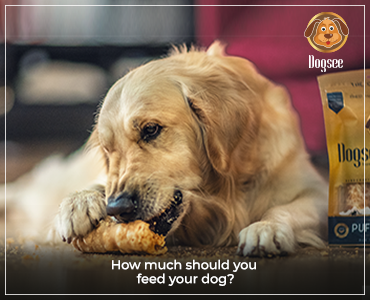Is your dog acting differently? Is he/she not eating or playing enough? This might be a sign that your dog is feeling depressed. But, unlike humans, they can’t exactly tell you how or what they are feeling, they can only show it to you. However, most of the behaviors they exhibit under the dark clouds of depression are very similar to those of humans. Here are some symptoms that dogs could indicate if your dog is depressed.
Common signs of depression in dogs
Change in appetite and apathy - Depending on the kind of comfort they seek, dogs tend to eat less and lose weight, or eat more and gain a lot of weight. They also tend to show less affection towards their family members and become reclusive or apathetic.
Lack of interest - They tend to become increasingly subdued and show a lack of interest in things that they used to enjoy. This leads to them being less playful, running around less, and a departure from their usual joyful selves.
Lots of sleeping - You will find your dog increasingly tired and sleeping most of the time. They tend to not get up from a particular spot for a long time and spend most of their time just staring into space, even after you try to get them to do what they love most.
Hiding and avoidance - Dogs are more likely to hide or seek cover whenever they feel something unnatural. The feelings of being depressed scare them as they don’t know how to deal with it. This sometimes might also lead to anxiety.
Licking and chewing - Excessive licking and chewing is a pretty clear sign that your dog is going through something. When depressed, dogs can tend to lick their paws a whole lot as it feels soothing and comforting.
Causes For Depression In Dogs
Change in the environment - Dogs are creatures of habit. They stick to their schedules and routines. If there is a sudden change in their environment or routine, such as moving to a new neighborhood or even a home renovation, it can be hard for them to comprehend. This might lead to some behavioral changes and mental stress.
Physical illness - Your dog’s change in behavior does not always mean that they are suffering from mental or emotional issues. It might also mean that they are in physical pain or suffering from an illness. The best way to figure this out apart from routine care at home is to immediately take them to the vet.
Grief - There is a reason when people say that a dog is a friend for life and much like us, they also feel lonely and sad whenever their friends, especially an in-house friend, is away (moved away, out on a vacation, and so on). They grieve for the friends that are not around and in some cases this can lead to depression.
Fear - Dogs have fears and phobias just like we do. This is when the changes in their behavior normally occur. They constantly worry about what might happen next if these fears and phobias are triggered. This leads them to withdraw and protect themselves so as not to be too vulnerable.
Your mental health - You might have noticed that when you are happy or excited, your dog is immediately pumped too, and when you feel down and blue, so does your dog. The same can be said for deeper mental health issues like depression. Your dog can just sponge it up!
How Can You Help?
Check-up - The first and perhaps the most important thing to do when you feel your dog might be depressed, is to get an opinion from the vet. It might be that your dog is in physical pain or they might be going through something emotionally and mentally. A check-up at the vet’s is the most reliable and safest option to get to the bottom of your dog’s troubles.
Going out - Doing something with your dog that they used to enjoy can help cheer them up. It can just be a drive around the block or taking them out to their favorite park.
Exercise - Keeping your dog busy is also a great way to cheer them up. Dogs have a lot of pent-up energy that needs to be released and exercise is a great way to do that. Exercising keeps their serotonin levels high and keeps them happier. Apart from that, keeping them busy with long-lasting treats or engaging toys is also helpful.
Treats and positivity - When dogs are depressed, apart from sleeping a lot and being detached, they also tend to stop wagging their tails, panting, and similar normal behaviours. So whenever an activity leads to even the slightest of tail wagging, praise them and give them treats. This encourages them to work towards overcoming their depression.
Although depression is an extremely serious issue, double-check that your dog’s depression is a mental health issue and not because they are physically in pain. It can be hard to help your dog overcome their depression, but with your constant love and affection, it becomes attainable.




